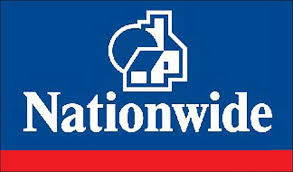
9:23 AM, 1st November 2022, About 2 years ago 1
Text Size
The annual UK house price growth slowed to 7.2% in October, from 9.5% in September, Nationwide reports.
Its house price index reveals that prices fall 0.9% month-on-month – the first monthly decline since July 2021.
Robert Gardner, Nationwide’s chief economist, said: “The market has undoubtedly been impacted by the turmoil following the mini-Budget, which led to a sharp rise in market interest rates.
“Higher borrowing costs have added to stretched housing affordability at a time when household finances are already under pressure from high inflation.
“For example, the increase in mortgage rates meant that a prospective first-time buyer (FTB) earning the average wage and looking to buy a typical FTB home with a 20% deposit would see their monthly mortgage payment rise from c.34% of take-home pay to c.45%, based on an average mortgage rate of 5.5%.
“This is similar to the ratio prevailing before the financial crisis.”
Nationwide says that the market looks set to slow down in the coming quarters and inflation will remain high for some time yet.
The lender is also predicting that the Bank Rate is likely to rise further as the Bank of England seeks to ensure demand in the economy slows to relieve domestic price pressures.
Mr Gardner said: “The outlook is extremely uncertain, and much will depend on how the broader economy performs, but a relatively soft landing is still possible.
“Longer term borrowing costs have fallen back in recent weeks and may moderate further if investor sentiment continues to recover.
“Given the weak growth outlook, labour market conditions are likely to soften, but they are starting from a robust position, with unemployment at near 50-year lows.”
Sarah Coles, a senior personal finance analyst at Hargreaves Lansdown, said: “House prices fell in October, as the impact of September’s mini-Budget tore through the mortgage market, trampling buyer confidence, and laying waste to their borrowing plans. The question is whether we’re seeing the market brake or start to break.
“Even before the mini-budget, a property slowdown was on the cards, as interest rates continued to climb, household bills mounted, and property prices rose even further out of reach.
“They were all bound to put the brakes on runaway house prices eventually. There’s the chance that this is what we’re seeing right now.”
She added: “Nationwide says there’s still some hope for a soft landing, with a strong labour market, a shortage of properties and a significant chunk of borrowers on fixed rates – all of which offer some protection on the downside.
“However, the steep rise in mortgage rates after the mini-Budget makes that hope slightly more distant.
“They may have fallen back slightly as calm returned to the market, but they’re unlikely to drop significantly at a time when the Bank of England is still expected to bring in a series of new rate rises.”
Tomer Aboody, director of property lender MT Finance, said: “Given recent political uncertainty, combined with interest rate fluctuations, it is no surprise that there is a slowdown in the housing market, as buyers and sellers are unsure whether to proceed.
“Rising cost of living and higher interest rates translate into less money in people’s pockets and therefore a different approach, until these higher costs become the norm.”
Jeremy Leaf, a north London estate agent and a former RICS residential chairman, said: “These figures are interesting as they already show a sharp fall even before the shock of the mini-Budget hit the market.
“On the ground, new buyer enquiries almost dried up as uncertainty about the future direction of mortgage repayments added to cost-of-living concerns.”
Previous Article
Just 1 in 12 homes is affordable for tenants on housing benefit
Accommodation Provider
Become a Member
If you login or become a member you can view this members profile, comments, posts and send them messages!
Sign Up12:30 PM, 5th November 2022, About 2 years ago
Now be a good journalist and factor in 10% inflation.and recalculate.